Center for Quality Management of Metrology
The Center for Quality Management and Metrology (CQMM), which is responsible for administrative support tasks in NMIJ, has an important role in disseminating measurement standards while ensuring proper implementation of measurement. The CQMM performs the following activities: public relations and consulting related to measurement standards and legal metrology; collaboration with international organizations such as National Metrology Institutes and other international legal metrology organizations; administrative support for issues pertaining to calibration, testing, and verification services; distribution of certified reference materials; cooperation with central and local governments to ensure the national metrology system; and technical training for metrology experts.
| NMIJ Public Relations Office | General coordination, needs survey, PR activities and development planning regarding measurement standards |
|---|---|
| NMIJ International Cooperation Office | International activities, working toward international mutual recognition of measurement standards and legal metrology under the Meter Convention and the OIML Convention |
| Metrology Quality Office | Customer relations for calibration/testing services and quality management on the NMIJ calibration/testing activities |
| Reference Materials Office | Administration of certified reference materials, promotion of end support for the NMIJ quality assurance system in the chemical standard divisions |
| Legal Metrology Management Office | Technical consultation, technical training and international activities in legal metrology |
| Metrology Training Center | Training on legal metrology and measurement standards; technical training in metrology to trainees from developing countries |
NMIJ Public Relations Office
NMIJ Public Relations Office is in charge of project planning, public relations and general affairs related to measurement standards in NMIJ. The detailed works are as follows,
- Planning and management of the development of measurement standards (physical standards and reference materials) .
-
Awareness building and dissemination activities (seminar planning , and exhibitions etc.,)

-
Public relations and publicity through media contents (pamphlet, report, web page etc., )
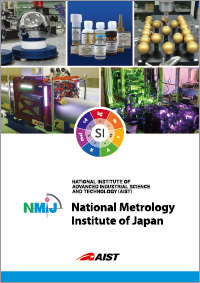
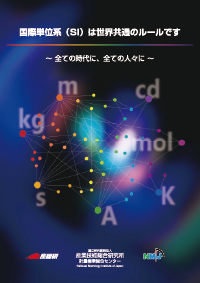
- General affairs (technical consultations etc., )
NMIJ International Cooperation Office
The International Cooperation Office is responsible for international activities under the Meter Convention and the Convention Establishing an International Organization of Legal Metrology (OIML Convention).
Specifically, it is working toward international mutual recognition of measurement standards under the Meter Convention and development of a framework for mutual acceptance arrangements ( MAA ) for model evaluations under the OIML Convention.
Standardized measurements under the laboratory accreditation system have had a major effect on trade. Therefore, to ensure that Japanese calibration and testing standards are consistent with international ones, the Office works to conclude bilateral and multilateral conventions, including international comparisons of measurement standards and organization of mutual evaluations, as well as activities to expand and enrich the content of such conventions.
In accordance with the Meter Convention and the OIML Convention, which are both international treaties, the Office is also engaged in joint research with standards research organizations in various countries and technical cooperation, including coordination of technical training by the Japan International Cooperation Agency (JICA), an independent administrative institute. In the future, the Office will plan and implement international comparisons of measurement standards, peer reviews of quality systems and other projects that promote international mutual recognition of national measurement standards and legal metrology.
Metrology Quality Office
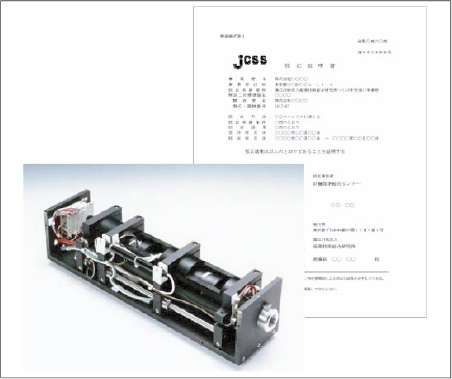
The Metrology Quality Office is the contact office for the calibration/testing services performed in the research institutes in the NMIJ and conducting the quality management on the calibration/testing acclivities.
The calibration/testing services include:
- Verification of specified measuring instruments, inspection of verification standards,and type approval testing based on the Measurement Act of Japan.
- Calibration services based on the Measurement Act of Japan
- Calibration services for proficiency tests related to accreditation program
- Distribution of measurement devices developed for measurement standards
- Testing/calibration services for special needs
The Metrology Quality Office is the contact office that accepts applications and issues certificates for all the services listed above.
Reference Materials Office
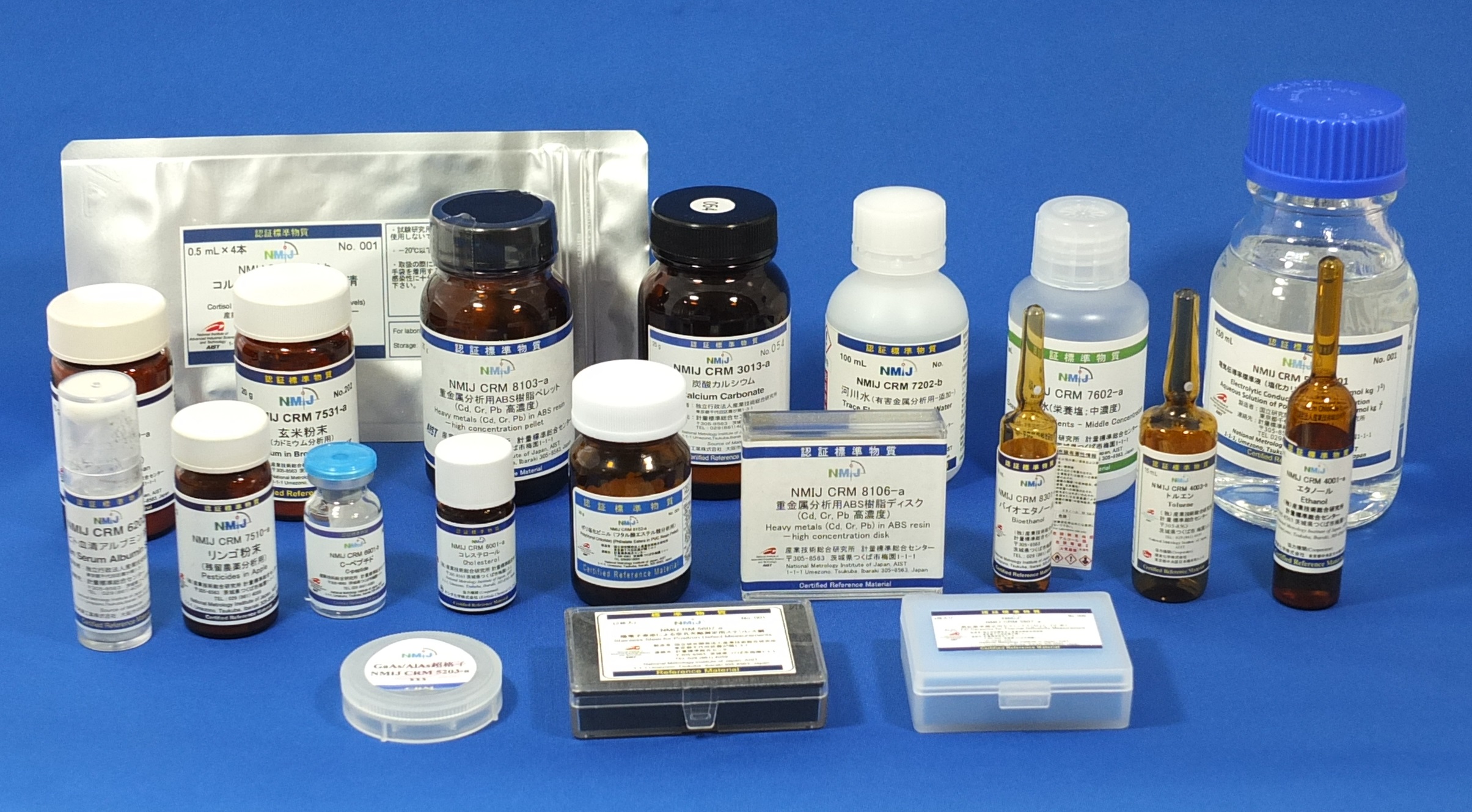
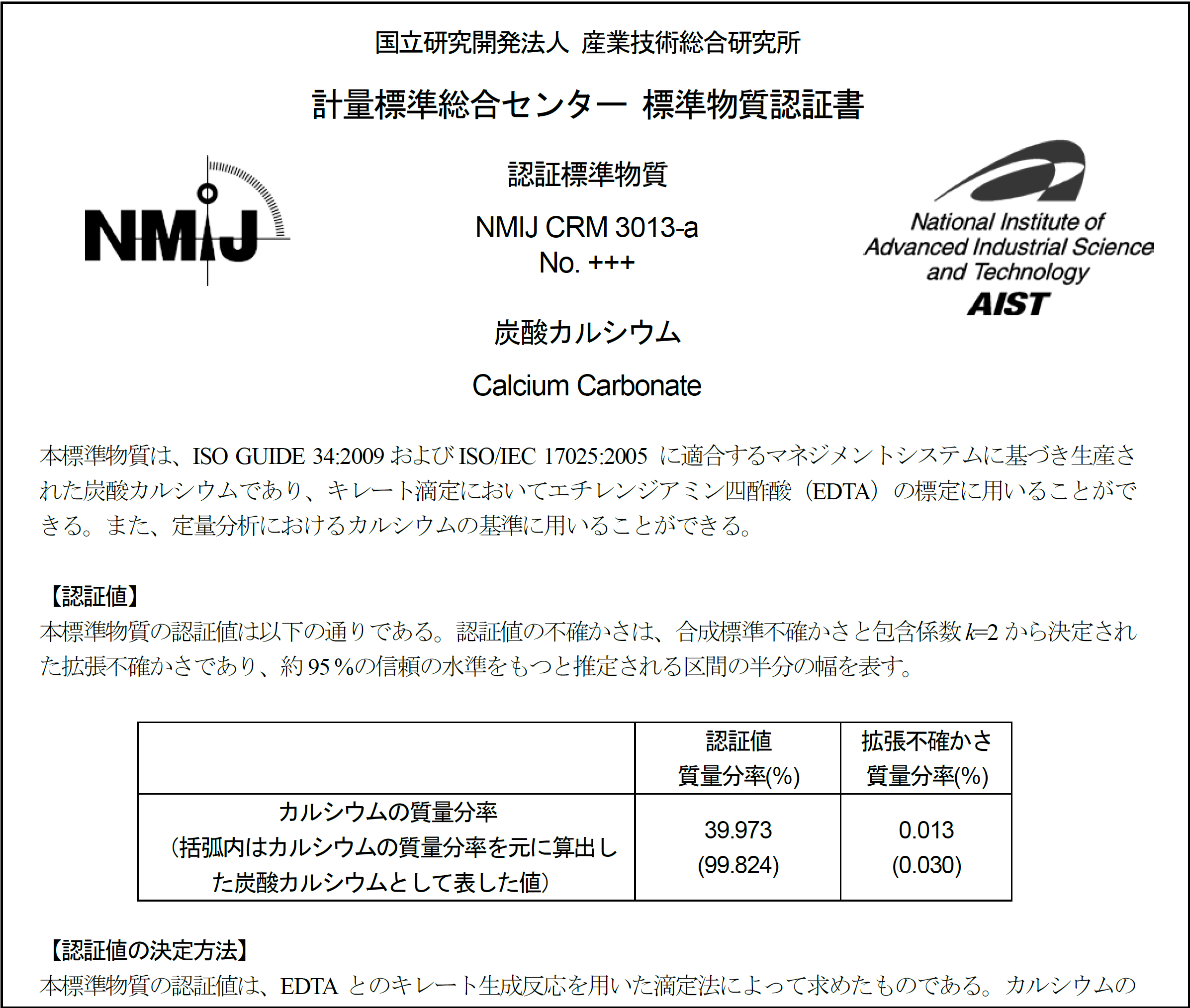
The Reference Materials Office contributes to the dissemination of measurement standards by distributing certified reference materials. It also helps develop quality assurance systems for reference materials, provide support for their operation, and deal with legal procedures about the safety and management of reference materials.
To disseminate measurement standards, management systems that comply with internationally accepted criteria must be secured in various aspects of an organization, including technology, institutional structure, equipment and operation. Management systems are indispensable for the international mutual recognition of measurement standards. This mutual recognition assures public users of the standards needed for smooth international transactions.
Therefore, the Reference Materials Office provides support for NMIJ in developing and operating the necessary management systems for production of certified reference materials. The Center for Quality Management of Metrology operates management systems based on ISO/IEC 17025, which stipulates requirements that testing/calibration laboratories must fulfill, and based on ISO Guide 34, which regulates laboratories that produce reference materials. These management systems also undergo certification by third parties under the ASNITE program, further promoting the reliability of the Center's measurement-standard supply services.
Legal Metrology Management Office
Legal Metrology Management Office coordinates all activities in legal metrology conducted by NMIJ. This office provides appropriate suggestions based on technical knowledge and practical needs from the society. In addition, the office drafts future plans and proposals in order to adopt recent movements in the international organizations and advancements in technology.
In order to implement above activities, this office plays a core role by collecting necessary information/knowledge from the experts in NMIJ, and transfer them to the society. The office also provides technical consultations and workshops/seminars in the field of legal metrology.
Legal Metrology Management Office practically deals with:
-
Technical consultation:
This office offers technical advices about the services provided by NMIJ such as, type approval, verification standards subject to inspection and other tests upon request. -
Technical training:
We organize technical seminars with lectures for inspecting and verifying legally-specified measuring instruments, such as non-automatic weighing instruments, and verification standards. -
International activities:
This office supports liaisons between the international organizations in legal metrology such as OIML (International Organization in Legal Metrology) and APLMF (Asia Pacific Legal Metrology Forum) including participation to their meetings. In Japan, the office plays a core role to coordinate the opinions from local stakeholders and propose them to the international organizations. The office also provides consultation for the manufacturers which intend to obtain OIML certificates for type evaluation (R 49, R 60, R 76 and R117).
Metrology Training Center
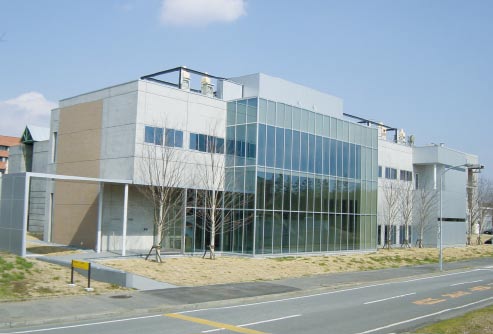
The Metrology Training Center provides a place and opportunity for users to acquire knowledge about metrology and new technologies for measurement. The Center uses part of the Sakura-kan Building, which is located in the "Woods of AIST," at one corner of AIST Tsukuba Center.
Main Services of the Metrology Training Center
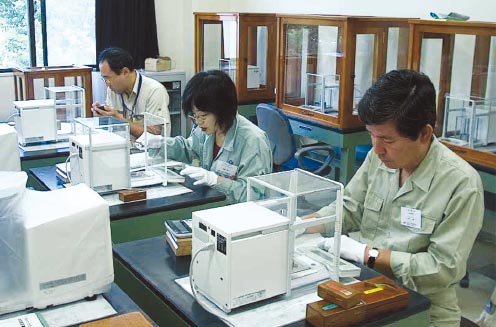
The Metrology Training Center's primary aim is to improve the technical abilities of public workers engaged in metrology-related administration in prefectures and designated municipalities, and also to provide training for prospective general certified measurers and environmental certified measurers.
Under the Measurement Law in Japan, the Metrology Training Center provides various training courses on metrology and other subjects necessary to carry out metrology-related services, such as the Measurement Law,
measurement standards, domestic/overseas legal metrology systems, accreditation systems for testing laboratories, and the development and evaluation of quality systems. Target populations for such courses are those engaged in legal metrology services in the public sector, including the Ministry of Economy, Trade and Industry (METI), various organizations of prefectures and local municipalities, and designated laboratories for testing, inspection, verification and calibration, as well as those in the private sector who aim to be certified measurement experts. The Metrology Training Center also offers further advanced training courses for metrology experts such as uncertainty training. Training courses for measurement experts vary in content, from the fundamentals to applications. They are designed to provide as many practical sessions as possible. Some deal with specific aspects of metrology, while some are designed especially for those in managing positions.
Certified Measures:
Periodic inspections of measuring instruments performed by prefectures as well as the promotion of appropriate measurement management are necessary to guarantee reliable measurement. The Measurement Law stipulates the establishment of the qualification of certified measurers to carry out those responsibilities and also states that measurers are to be certified when meeting the specified qualifications.
Certified measurers are divided into three categories -certified general measurers and two types of certified environmental measurers (concentration or noise/vibration).
Two Ways to Become a Certified Measurer:
Taking the national examination to become a certified measurer
Those who choose to become a certified measurer in this way must first take and pass the national examination, and also satisfy certain requirements, such as the required level of work experience in the field.
The national examination for certified measurers is held once every year.
In the case of environmental measurers, even if certain requirements remain to be met after passing the national examination, the certificattion will still be granted only after the completion of a required environmental measurement course (concentration measurement or noise/vibration measurement) provided by Metrology Training Center.
Completing training courses at the Metrology Training Center
Another way to become a certified measurer is to complete the required training course at the Metrology Training Center (an approximately five-month-long course) and to be accredited by the Measurement Administration Council. Those who choose this option still need to meet other requirements, such as work experience. The accreditation will be given after a review of application documents to become a certified general measurer, while an interview, in addition to the application review, is required to become a certified environmental measurer.
The Metrology Training Center offers a course for prospective certified measurers. All trainees first need to take the general measurement training, and then move on to their individual training, such as the general measurement special training (to become certified general measurers) and two types of environmental measurement special training (to become certified environmental measurers, either for concentration measurement or noise/ vibration measurement).
In order to participate in the general measurement training, applicants must pass the screening test given by the Metrology Training Center.
The test consists of general knowledge, physics, and mathematics questions. The level of the test is approximately that of high school graduates.
Completing the general measurement training is a prerequisite for moving on to more advanced training, such as the general measurement special training and the environmental measurement special training.
